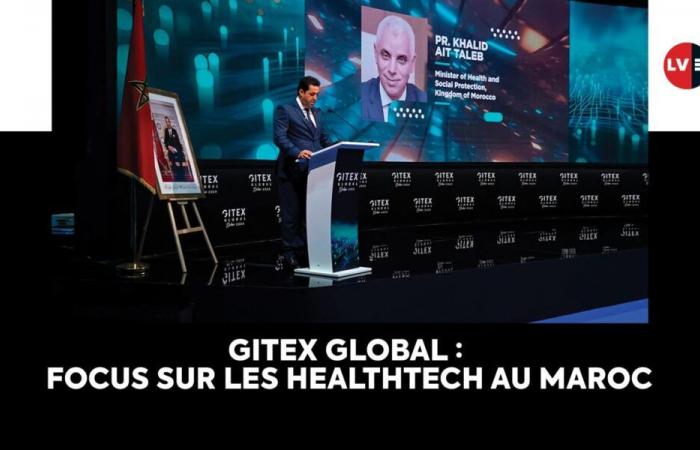Morocco’s experience in digital transformation of the health sector was at the heart of a conference organized by the Ministry of Health during Gitex Global 2024, the largest technological event in the world which kicked off was given on Monday in Dubai. Under the theme “Digital transformation in the health sector: increasing the efficiency and accessibility of care thanks to new technologies”, this side-event allowed us to shine the spotlight on the latest advances made by the Kingdom in terms of digitalization of the healthcare sector. A sector that increasingly uses the latest technologies, with the fundamental objective of offering citizens quality and easily accessible care.
“Under the enlightened leadership of His Majesty King Mohammed VI, Morocco has embarked on a profound transformation of its health system, placing technological innovation at the heart of this overhaul,” immediately underlined the Minister of Health. Health Khalid Ait Taleb, in a speech read on his behalf by Aziz Mrabti, Director of Medicines and Pharmacy, in front of a packed room.
The direct impact of these innovations on improving access to care is already perceptible, said the minister, particularly in remote areas, where telemedicine and Connected Mobile Medical Units allow patients to benefit from specialized services without having to travel.
The minister also indicated that one of the major challenges faced lies in the interoperability of information systems, to the extent that a modern and efficient health system relies on the ability to share data securely and fluidly between different services and actors. It is with this in mind that Morocco has developed an integrated information system by adopting the Shared Medical File. A major innovation that strengthens the continuity of care, while adopting international best practices in cyber security.
AI for connected health
Beyond information systems, artificial intelligence opens up new perspectives for the health sector, with this technology having a revolutionary impact on the way in which care is provided. As highlighted by Mehdi Ghissassi, Product Manager at AI71, a pioneering AI company launched by the Advanced Technology Research Council of Abu Dhabi and VentureOne, “AI can address critical healthcare challenges by reducing unnecessary spending, alleviating shortages of professionals and improving the capabilities of doctors.
With this in mind, in Morocco, pilot projects using this process are already underway in sectors such as radiology, oncology and emergency management, within the framework of public-private partnership, ato, recalled. And these projects are now set to multiply.
Among the most successful partnerships, we find that between Aba Technolgy and the Ministry of Health and Social Protection, which has given rise to “concrete” solutions in the field of healthTech. According to Mohamed Benouda, president of Aba Technology, whose speech at this side-event focused on the medicine of the future, Morocco is in the process of achieving a profound transformation in health. The company specializing in new technologies, which has set up a subsidiary dedicated to connected health called “Mediot”, has also developed a range of connected medical equipment, which makes it possible to collect patient information and to process them, via a dedicated platform. This platform offers personalized monitoring, early diagnoses, proactive management of chronic diseases, patient file integration and optimization of healthcare.
Some of these solutions are being emulated abroad, and are already being exported, in particular to Saudi Arabia and even to Polynesia. Countries like Guinea, Gabon, and Djibouti are also interested.
According to Benouda, the medicine of the future is based on three main axes: so-called 7P medicine (predictive, preventive, planetary, proven, personalized, etc.) medtech (solutions based on IoT, AI, cloud computing, etc.). ), and biotechnology (nanotherapy, etc.). “These three elements will increase life expectancy and above all reduce the health gap throughout the world,” he explained.
Cybersecurity and training, main challenges to overcome
But for optimal success of this medicine of the future, two important challenges must be met. First, cybersecurity. “Health data is particularly lucrative for hackers,” said Anas Moutii, professor of cybersecurity at UM6P. Hence the importance of respecting good practices in cyber defense, to preserve the “integrity, confidentiality and accessibility” of this data.
The other challenge is the training of human resources in the medical sector in new technologies. As Oussam ElHassan, member of the Dubai Health Authority, pointed out, “we must of course invest in IT infrastructure and technologies, but we must not forget to invest in skills”.






